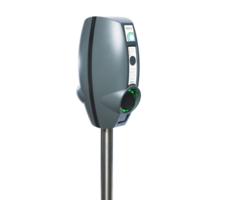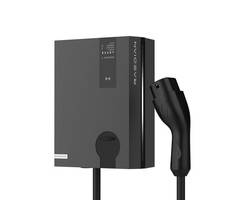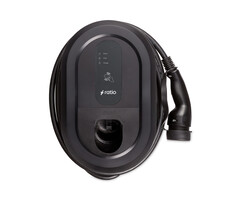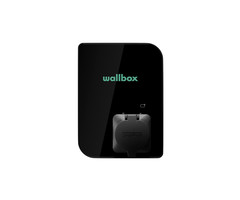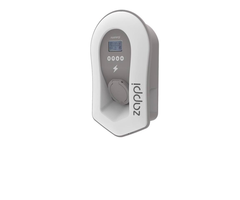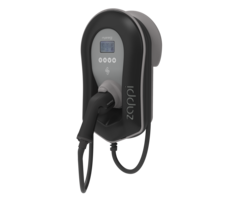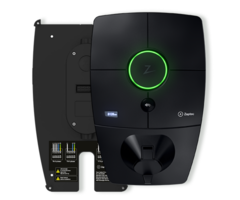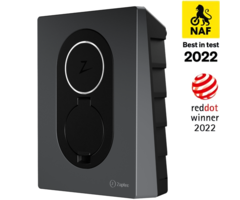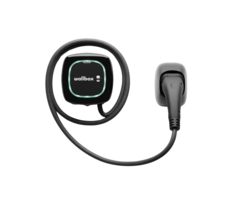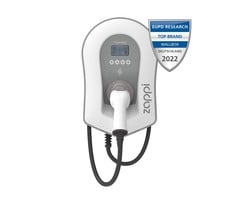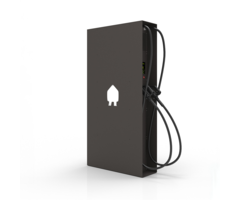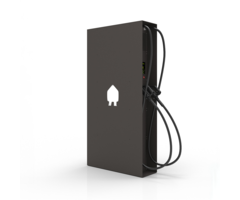Company EV Chargers and charging stations for your home and office
Buying a Company Charging Station
There are two points you have to take into account when you buy a charging station for your company. Most charging stations are for company owners or employees who need to charge at home with a EV Charger of the company. But of course, there are also an increasing number of companies that want one or more charging stations at the company site. For both situations 1 thing is often most important for buying a company charging station and that is how to handle the payments.
There are 2 ways to settle the power business wise:
1) The EV Charger is equipped with OCCP. What is OCCP? OCCP stands for Open Charge Point Protocol and is thus a communication protocol between the EV Charger and a central backoffice system. It ensures that a charging transaction goes from the EV Charger to a back office to which the EV Charger owner's bank account is linked. In the process, it also exchanges information between the hybrid and/or electric car and the electricity grid. If you want to automatically settle the power with the employer and/or leasing company, the EV Charger must be equipped with OCCP. The back office system is often run by a EV Charger brand or a software company such as Newmotion and E-flux. To use their back office, you pay for a subscription which depends on some points such as the number of charging stations. Most subscription fees for business settlement are around 4.50 - 6.00 euros including VAT per month, depending on the brand of charging station and software. At the end of each month the lease company or employer will receive an invoice with all charing transactions.
2) The other way is via an internal or external KWH meter with MID. A KWH meter is literally a meter that measures the amount of kW going through it. There are charging stations with a built-in kwh meter, but you can also have a kwh meter installed in the fuse box. This then measures all the power that goes to the charging station via the fuse box. Important in many European countries is that it has a MID quality mark. The MID quality mark indicates whether the registered number of kWh can be used for registrations and settlements for your employer and/or tax authorities, for example. Most charging stations equipped with OCCP also have an integrated KWH meter with MID. When it does not have it, it is often not equipped with a KWH meter with MID either. Some EV Chargers do have a kwh meter built in, but without MID which is mandatory for business settlement in most European countries.
An external kwh meter for the EV Charger can be found in our webshop.
Pros and cons of a EV Charger with OCCP
+ Fully automated settlement and you no longer have to worry about it
+ You can set different tariffs yourself. For example, free charging for employees and paid charging for customers
+ Easy to use with several charging stations within the company
+ Clearer system when there are several company charging stations
- You are tied to a subscription
- More expensive than via external KWH meter
Pros and cons of EV Charger with separate KWH meter
+ Most economical way; you pay a one-off fee for a kwh meter of 35 euros for a 1 phase kwh meter or 79 euros for a 3 phase KWH meter.
+ You are not tied to a subscription
+ Easy to use, just read the amount of KW on the LED screen on the meter
- Fraud-sensitive, as you cannot see which car is being charged with it.
- Not convenient and/or clear when the company has several charging stations at homes of employees.
Business EV Charger at home
To charge your company lease car at home, in many cases you also need a business EV Charger. After all, you want the charging costs of your lease car to be passed on to your employer. With many leasing companies, this requires mandatory use of a business wallbox with OCCP and a backend if you charge it at home. Each charging session is recorded and the cost is reimbursed at the end of the month. Charging at home with the company car is thus very easily compared to the fuel receipts of the past and the cost is for the employer.
With many smaller employers or if you are self-employed, it is also possible to use manual declaration using the aforementioned KWH meter with MID.
Company charging station
Buy a charging station for your company? Besides a charging station for employees at home, you increasingly see charging stations at the office. For employees, but also for customers, it is nice to have a charging station at the company premises. In almost all cases, a charging station with OCCP and a backend is chosen so that everyone is welcome to charge and the charging sessions are neatly settled at the end of the month. For this, you need a charging station management software party with which to link the charging station. These are companies like Newmotion, E-flux and Maxem. This can be done through us in some cases, but some companies arrange it themselves. In any case, it is necessary to enable automatic settlement. If you want a charging station with software from one of these software companies through us, you need to indicate this in advance.
To keep the investment as low as possible, it is wise to look at the charging needs now and in the future. One or a few charging stations may be sufficient now, but with the rapid scaling up of the number of electric cars, a small charging station may be needed in two years' time. The presence of sufficient power is the most important factor here.



